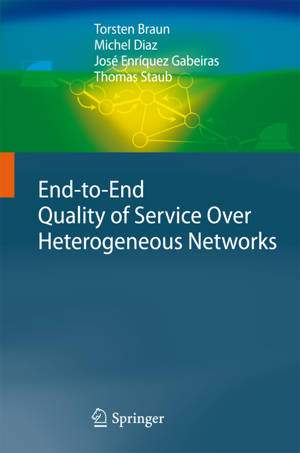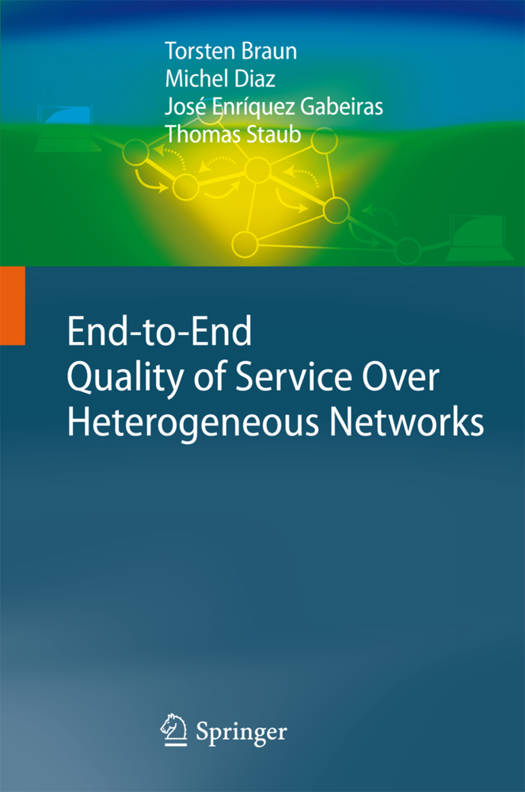
- Afhalen na 1 uur in een winkel met voorraad
- Gratis thuislevering in België vanaf € 30
- Ruim aanbod met 7 miljoen producten
- Afhalen na 1 uur in een winkel met voorraad
- Gratis thuislevering in België vanaf € 30
- Ruim aanbod met 7 miljoen producten
Zoeken
End-To-End Quality of Service Over Heterogeneous Networks
Torsten Braun, Michel Diaz, José Enríquez Gabeiras, Thomas Staub
Hardcover | Engels
€ 105,45
+ 210 punten
Uitvoering
Omschrijving
The Internet has evolved from an academic network for data applications such as le transfer and net news, to a global general-purpose network used for a variety of different applications-electronic mail, voice over IP, television, peer-to-peer le sharing, video streaming and many more. The heterogeneity of applications results in rather different application requirements in terms of bandwidth, delay, loss, etc. Ideally, the underlying network supports Quality-of-Service parameters such that - plications can request the desired services from the network and do not need to take actions by themselves to achieve the desired communication quality. Initially, the Internet was not designed to support Quality of Service, and only in the last decade have appropriate mechanisms been developed. Those mechanisms operate mainly on theInternetProtocol(IP) level, butalso network-speci cmechanisms-e. g., targeted to particular wired/wireless access network technologies-are required. The goal of the European 6th Framework Programme (FP6) Integrated Project "End-to-end Quality of Service Support over Heterogeneous Networks" (EuQoS) was to develop, implement and evaluate concepts and mechanisms to support QoS end-to-end, meaning that QoS mechanisms in end systems, access networks, inter- main links and within domains must be supported. The EuQoS project developed an impressiveset ofinnovativesolutionsandnovelscienti cideastosupportend-to-end QoS on the Internet. New mechanisms and concepts were designed and implemented in a European-wide distributed testbed. In addition to the rather technical design and implementation work, the project also developed training material introducing basic QoS mechanisms and techniques.
Specificaties
Betrokkenen
- Auteur(s):
- Uitgeverij:
Inhoud
- Aantal bladzijden:
- 266
- Taal:
- Engels
Eigenschappen
- Productcode (EAN):
- 9783540791195
- Verschijningsdatum:
- 14/08/2008
- Uitvoering:
- Hardcover
- Formaat:
- Genaaid
- Afmetingen:
- 161 mm x 237 mm
- Gewicht:
- 616 g

Alleen bij Standaard Boekhandel
+ 210 punten op je klantenkaart van Standaard Boekhandel
Beoordelingen
We publiceren alleen reviews die voldoen aan de voorwaarden voor reviews. Bekijk onze voorwaarden voor reviews.











